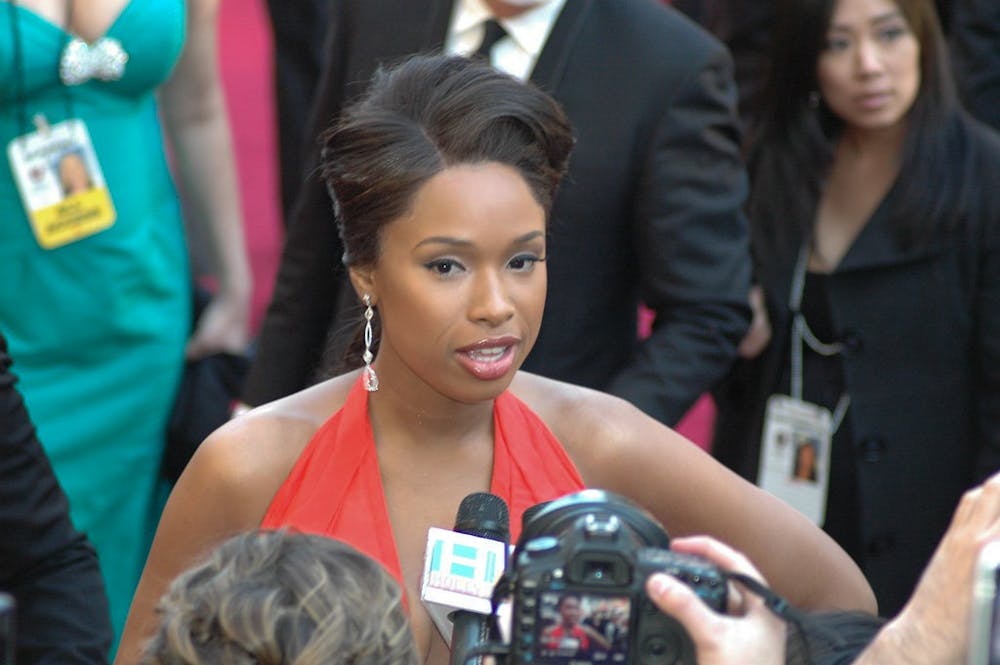Black woman for Best Actress: a necessary step for the Academy Awards

The Oscar nominations come out today, Tuesday, Feb. 8, which means that as I’m writing this a few days before publication, I don’t know the full list of nominations. While I’m not in the business of predictions, one thing I feel comfortable saying is that there will be a maximum of one Black woman nominated for Best Actress, and if she is nominated, she won’t win.
That woman, if she is nominated, will be Jennifer Hudson for her role as Aretha Franklin in “Respect.” “Respect” is typical biopic fare, portraying Franklin’s life story from the time she was 10 through the recording of her 1972 gospel album, “Amazing Grace.” Hudson is very good in it: tender when she needs to be and strong when she needs to be. Her voice, as always, soars. However, even if she is nominated, it will be another example in a long line of iconic Black actresses who never win leading awards. Over the past 15 years, six Black women have won the Academy Award for Best Supporting Actress: Mo’Nique for “Precious” in 2009, Octavia Spencer for “The Help” in 2011, Lupita Nyong’o for “12 Years a Slave” in 2013, Viola Davis for “Fences” in 2016, Regina King for “If Beale Street Could Talk” in 2018, and Hudson herself, 15 years ago in 2006, for her role in “Dreamgirls.” Over that time, not a single Black woman has won the Best Actress award.
In fact, only one Black woman has ever won for Best Actress: Halle Berry for her 2001 performance in “Monster’s Ball.” As she gave her speech, Berry was famously verklempt. Through sobs, she listed the names of iconic Black actresses before her, then transitioned into listing the names of her current Black actress peers. It was clear that Berry saw herself as the potential first moment in a movement where Black women could be recognized for their talents as leads, not just as supporting characters. As Berry herself noted in 2016, that has not happened.
The Academy is only comfortable with Black actresses being recognized for their work as supporting characters in film. It’s been this way for as long as the awards have run. In fact, the first Oscar ever won by a Black person was won in the Supporting Actress category — Hattie McDaniel for her role as Mammy in the 1939 film, “Gone with the Wind.” That role placed McDaniel as a stereotypical “comforting” slave to its romantic lead, Scarlett O’Hara. Though the win was historic, the role did not challenge any existant comfort among white filmgoers in regards to slavery or Black womanhood. The difference between when the Academy was ready to award Black women in its two categories for actresses (1939 for McDaniel 2002 for Berry) shows how easy it was for the Academy to see Black women as worthwhile supporters of whiteness, but how hard it was for them to see Black women on their own terms.
Though it’s easy to chalk the disparity up to the lack of roles for Black women in major motion pictures during this time, that critique doesn’t tell the whole story. While getting Black women leading roles is and was a challenge unto itself, there have absolutely been times when leading Black actresses could have and should have won the trophy.
Whoopi Goldberg’s role as Celie in 1985’s “The Color Purple” is of particular note here. Goldberg’s turn as Celie was universally acclaimed. Roger Ebert went as far, in his review of the movie, to say, “Here is this year’s winner of the Academy Award for best actress.” She wasn’t. Goldberg lost to Geraldine Page, a white woman, for a film few remember called “A Trip to Bountiful,” largely due to her lack of previous wins. Goldberg’s potentially historic win for Best Actress was pushed aside in favor of awarding Page because Page’s story of losing seven previous Oscars was seen as more significant than Goldberg’s story or performance.
The Academy did award Goldberg later, for 1990’s “Ghost,” a movie where she plays a medium helping a white woman talk to her dead, white husband. It was, of course, a supporting role.
It’s relatively common for actors to win Oscars not for their best performances, but for a performance that comes at the right time. Julianne Moore was largely perceived as “overdue” for an Oscar win by the time she won Best Leading Actress for her role in “Still Alice” in 2014. Kate Winslet had lost the Oscar five times before the time she won for 2008’s “The Reader.” Both “Still Alice” and “The Reader” are good enough movies, but neither actress gives her all-time best performance in either. It was simply time for them to win.
Yet, it never seems to be “time” for great Black actresses to win Leading Actress. Instead, they are either overlooked completely, as Cicely Tyson was before she passed away last year without ever winning a competitive award, or shoved into the Supporting Actress category, whether the role warrants it or not.
Viola Davis won Best Supporting Actress in 2016 for her role as Rose Lee Maxon in “Fences.” This was surprising, not because she didn’t deserve to win, but because the role is clearly a lead. In fact, Davis had already won a Tony award for her performance as Rose on Broadway, where she was in the leading category. Unfortunately for Davis, it was perceived as impossible for her to win against Emma Stone’s performance in “La La Land” that year, despite Davis’ performance being better on virtually every metric. So, instead, Davis was campaigned in the supporting category, because the white ingenue was simply impossible to beat.
The same situation happened to Hudson herself when she won the supporting award for “Dreamgirls,” where she played Effie White, a role that had won Jennifer Holliday, who originated the role on Broadway, a Tony in the leading category.
If the Oscars have nominated Jennifer Hudson in the leading category by the time you’re reading this (and it’s no guarantee they’ll even have Hudson), I can confidently say she will not win. It’s clear that the Academy cannot comprehend Black women as among the best leading performances of the year, and that is not due to their performances, but the Academy’s racism.




Please note All comments are eligible for publication in The Justice.